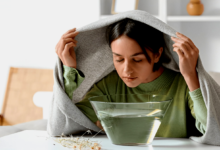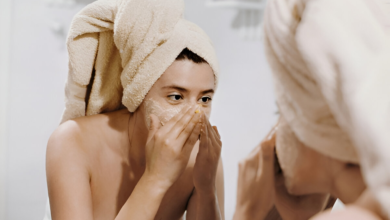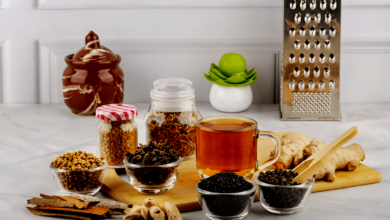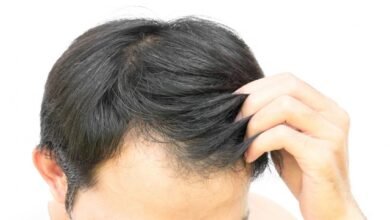Home Remedies for Seasonal Allergies That Actually Work
Discover home remedies for seasonal allergies that work Natural solutions like local honey quercetin foods and HEPA filters relieve sneezing & congestion fast.
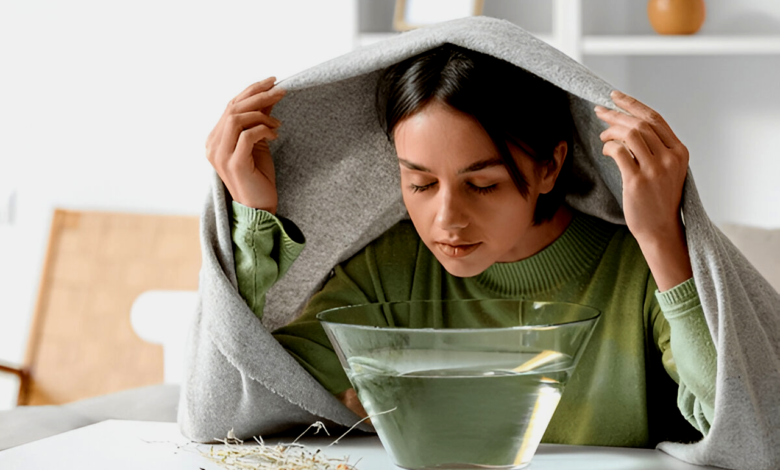
If you suffer from sneezing, itchy eyes, and a runny nose every spring or fall, you’re not alone. Seasonal allergies affect millions, but relief doesn’t always have to come from a pill bottle. Many home remedies for seasonal allergies can provide natural, effective relief without the side effects of medications. From soothing herbal teas to immune-boosting foods, these solutions help combat pollen, dust, and other triggers while supporting your overall health.
While over-the-counter antihistamines work for some, they can cause drowsiness, dry mouth, or other unwanted reactions. The good news is that nature offers plenty of alternatives time-tested remedies that reduce inflammation, clear congestion, and strengthen your body’s defenses. In this guide, we’ll explore the best home remedies for seasonal allergies backed by science and tradition, so you can breathe easier and enjoy the seasons again.
Home Remedies for Seasonal Allergies That Actually Work
Seasonal allergies, also known as hay fever or allergic rhinitis, occur when your immune system overreacts to outdoor allergens like pollen, mold spores, or grass. Common symptoms include sneezing, itchy eyes, nasal congestion, and fatigue. While antihistamines and decongestants can help, they often come with side effects like drowsiness or dry mouth. Fortunately, many home remedies for seasonal allergies can alleviate symptoms without unwanted effects.
Local Raw Honey
One of the most popular natural remedies is local raw honey. The theory is that consuming honey produced in your area exposes your immune system to small amounts of local pollen, helping it build tolerance over time. While scientific studies are limited, many allergy sufferers report significant relief after taking a teaspoon of raw honey daily. For best results, start consuming it a few months before allergy season begins.
Saline Nasal Rinse
A saline nasal rinse helps flush out pollen and irritants from your nasal passages, reducing congestion and inflammation. Using a neti pot or squeeze bottle with a saline solution can provide immediate relief. Make sure to use distilled or boiled water to avoid infections. Regular rinsing, especially after spending time outdoors, can keep allergies at bay.
Probiotics for Immune Support
A healthy gut microbiome strengthens the immune system, potentially reducing allergic reactions. Probiotic-rich foods like yogurt, kefir, sauerkraut, and kimchi introduce beneficial bacteria that may help regulate immune responses. Studies suggest that probiotics can decrease the severity of allergy symptoms by balancing inflammation.
Quercetin-Rich Foods
Natural Antihistamine Properties
Quercetin is a powerful plant flavonoid that helps stabilize mast cells the immune cells responsible for releasing histamine during allergic reactions. By preventing excessive histamine release, quercetin effectively reduces common allergy symptoms like sneezing, itchy eyes, and nasal congestion. Foods rich in quercetin, such as apples (especially with the skin), red onions, citrus fruits, berries, and leafy greens like kale and spinach, provide a natural way to combat seasonal allergies without the drowsiness often associated with over-the-counter antihistamines.
Anti-Inflammatory and Immune-Boosting Effects
Beyond its antihistamine action, quercetin also has strong anti-inflammatory properties that help calm irritated airways and nasal passages. Regular consumption of Home Remedies-rich foods or supplements (typically 500–1000 mg daily) can strengthen the immune system’s response to allergens over time. For best absorption, pair these foods with vitamin C sources (like bell peppers or oranges) or consider a quercetin supplement with bromelain (an enzyme found in pineapple), which enhances its effectiveness in fighting allergy symptoms.
Butterbur Extract
Butterbur, an herb traditionally used for migraines, has Home Remedies promise in relieving allergy symptoms. Research indicates it can be as effective as antihistamines without causing drowsiness. However, choose a PA-free (pyrrolizidine alkaloid-free) product, as raw butterbur may contain harmful compounds.
Essential Oils for Congestion Relief
Eucalyptus, peppermint, and lavender oils have anti-inflammatory and decongestant properties. Adding a few drops to a diffuser or inhaling steam with these oils can open up nasal passages. Always dilute essential oils with a carrier oil before applying them to the skin.
Stay Hydrated
Dehydration can worsen allergy symptoms by Home Remedies mucus and increasing congestion. Drinking plenty of water, herbal teas, and broths keeps your respiratory tract moist and helps flush out allergens.
Air Purifiers and HEPA Filters
HEPA Air Purifiers Capture Microscopic Allergens
True HEPA (High-Efficiency Particulate Air) filters are scientifically proven to remove 99.97% of airborne particles as small as 0.3 microns including pollen, pet dander, dust mites, and mold spores. Placing a HEPA purifier in bedrooms or main living areas creates a cleaner breathing zone, especially during high-pollen seasons. For best results, choose a purifier with adequate room coverage (CADR rating) and replace filters as recommended.
HEPA Vacuums Prevent Allergen Recirculation
Standard vacuums often redistribute allergens back into the air through exhaust. A HEPA-filter vacuum traps and seals fine particles inside the machine instead of releasing them. Regular vacuuming (2-3 times weekly) of carpets, upholstery, and mattresses with a sealed-system HEPA vacuum drastically reduces settled allergens. For severe allergies, pair this with hard floor mopping to eliminate residual irritants.
Apple Cider Vinegar
Apple cider vinegar (ACV) is believed to break up mucus and support lymphatic drainage, reducing allergy symptoms. Mix one tablespoon of raw, unfiltered ACV with warm water and honey for a soothing drink.
Herbal Teas
Stinging nettle tea acts as a natural Home Remedies, while ginger and green tea have anti-inflammatory properties. Drinking these teas regularly can ease sneezing, itching, and congestion.
Lifestyle Adjustments to Reduce Allergy Symptoms
Beyond remedies, simple lifestyle changes can minimize exposure to Home Remedies Keep windows closed during high pollen counts. Shower after being outdoors to remove pollen from skin and hair. Wear sunglasses to protect your eyes from pollen. Wash bedding frequently in hot water.
When to See a doctor
While home remedies for seasonal allergies can be effective, severe cases may require medical attention. If symptoms persist despite natural treatments, consult an allergist for further evaluation.
Read More: Smart Scales: Do They Really Help with Weight Loss?
Conclusion
Finding relief from seasonal allergies doesn’t always require medication many home remedies for seasonal allergies can effectively reduce symptoms while supporting your overall health. From raw local honey to saline rinses and anti-inflammatory herbs, these natural solutions offer gentle yet powerful ways to combat sneezing, congestion, and itchy eyes without harsh side effects. By incorporating these remedies into your routine, you can take control of your allergies and enjoy the changing seasons with greater comfort.
Consistency is key when using home remedies for seasonal allergies, as many work best with regular use. While severe cases may still require medical attention, these natural approaches provide a strong first line of defense. Experiment with different remedies to discover what works best for your body and embrace a more holistic way to manage allergies one that keeps you feeling your best all year round.
FAQs
Can local honey really cure seasonal allergies?
While not a cure, local raw Home Remedies may help build tolerance to pollen over time, reducing symptoms for some people.
How often should I do a nasal rinse?
Once or twice daily during peak allergy season is ideal but always use sterile water to avoid infections.
Are probiotics effective for all allergy sufferers?
Results vary, but probiotics can help balance the immune system, potentially easing symptoms for many.
Is butterbur safe for long-term use?
Only use PA-free butterbur supplements, as raw forms may contain Home Remedies compounds.
Can essential oils replace allergy medications?
They can help relieve symptoms but should complement, not replace, medical treatments for severe allergies.

